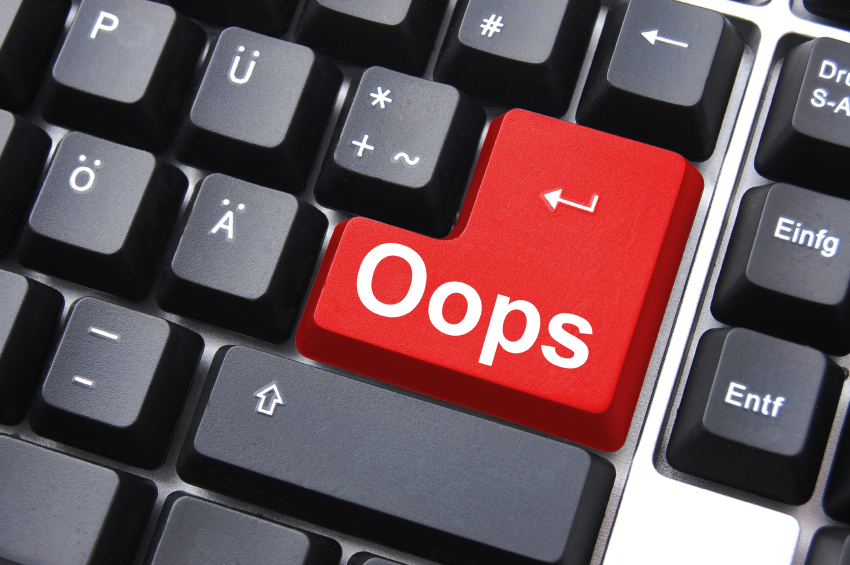
George Carlin is one of my favorite comedians of all time. He had the gift to recognize a completely normal situation and turn it into something hilarious. One of his most unforgettable jokes was his “Seven Dirty Words.” You don’t have to think very hard to come up with the seven. I’ll give you a hint – most are four letters.
If you’re still struggling, you can always Youtube the joke, although I would recommend wearing headphones and not being at work. The crux of his joke is that “someone decided long ago that these were bad words and we just weren’t going to say them.”
If we apply that definition to government, the dirty words change significantly. While we could debate what the “seven dirty words” of government are, there is one word that tops them all – FAIL.
A learning experience
My first experience with “fail” was during a project where I was attempting to use a communication strategy that we had never done before. I had a theory for how we could use a certain communication channel more effectively, I researched my idea, I came up with metrics to measure the success of the project and I executed. Everything was perfect. Probably because I am awesome.
Maybe I’m not as awesome as I thought. Despite everything I did to prepare, I didn’t reach the metrics I set. I failed. But it was ok. I took a chance to try to deliver better services and it did not work out. I learned and I made adjustments to give me a better chance to succeed in the future. When I told my boss that the project had failed, I was quickly corrected: You didn’t fail, you learned something. Fail is such a strong term.
Technically, she was right. I did learn something. But by all accounts, I had failed. I had a success metric and I did not meet it. Therefore, I failed. It wasn’t an indictment on my work ethic, or intelligence, but a simple fact that I tried something and it wasn’t a success. It happens. But, it wasn’t just my boss telling me that I didn’t fail, but all my other coworkers quickly corrected my assessment. Why was it so bad to say I failed? Does governments fear of failure really outweigh its desire to innovate?
“I have not failed, I’ve found 10,000 ways that won’t work”
Some people may read this and say “Why should I want to fail?” Thomas Edison turned his “10,000” failures to make a light bulb into something transformative. If we’re assigned “innovative” projects that never fail, then we’re not being innovative enough (I know we’d all like to think projects will never fail because we are awesome, but if you’ve never failed, maybe you’ve never truly taken a risk). To move government forward and innovate, we can’t be afraid to fail. Because if we learn to “fail forward“ and use that failure to create progress, then we are not only innovating, but transforming.
So everyone reading this: go out there and fail spectacularly! Just kidding… kind of. Nobody likes failing. It seems each month there is a new story covering some massive failure in some government program due to lack of governance, oversight, accountability, or measures. That is not the failure I’m talking about. I’m talking about taking an idea, creating a plan, executing the plan, and having a way to measure if you succeeded. Learn to fail the right way, and together we can redefine failure as “learning the way” rather than coming to a dead end.
A successful failure
The last question is: how do we learn to fail? People focus on the government-wide transformative efforts, but everyone can take small risks and attempt to be innovative within their own roles responsibilities. Every idea that improves how we work and the services we deliver to the taxpayer is a win, no matter the size of the improvement.
So what do you think? Is fail one of the dirty words of government? Can you think of some others?
Kevin Richman is part of the GovLoop Featured Blogger program, where we feature blog posts by government voices from all across the country (and world!). To see more Featured Blogger posts, click here.




Leave a Reply
You must be logged in to post a comment.